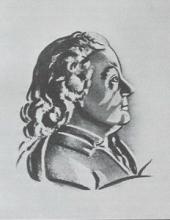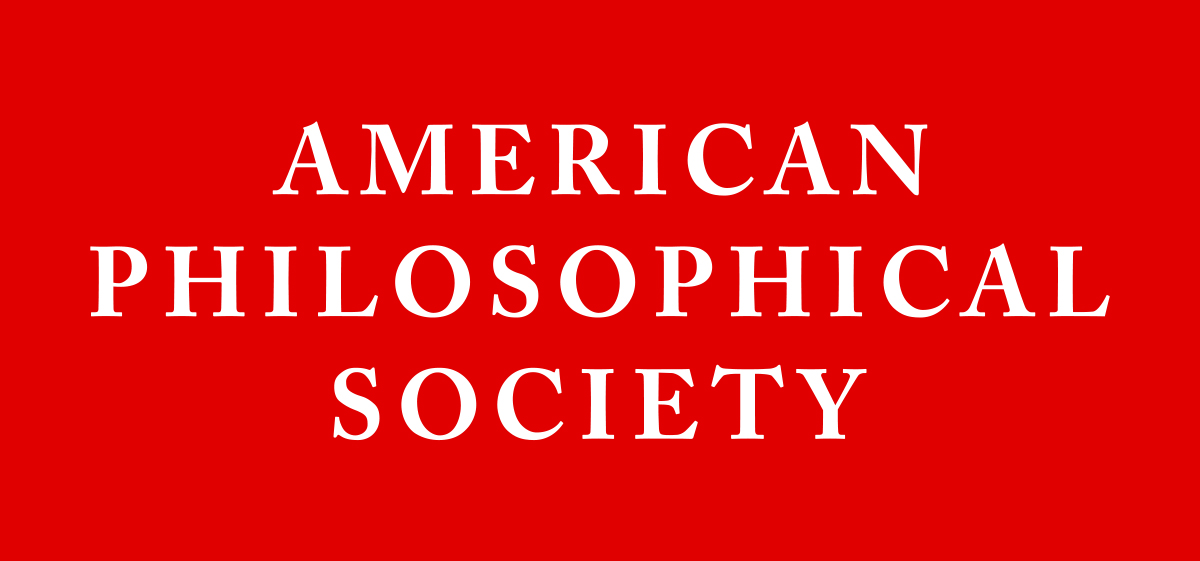Christian Mayer (230)
Election date: 1768Elected to the revived American Philosophical Society.

Christian Mayer (20 August 1719–16 April 1783) was an astronomer and educator, and a member of the American Philosophical Society, elected in 1768. Born in Moravia, Mayer’s education propelled him to Würzburg University to study theology before entering the Society of Jesuits in 1745. While he taught classical languages he increasingly devoted his time to other philosophical subjects, namely mathematics and astronomy. By 1751 he had introduced instruction in experimental physics at Heidelberg University and the following year assumed a professorship there as well. His work in astronomy drew the right attention and in 1755, the Electoral prince of the region (and a patron of the sciences) commissioned Mayer to design and furnish an observatory at the Electoral palace at Schwetzingen. With generous funding he met with French astronomers, purchased French and English instruments, and, in the nick of time, erected everything he needed to join astronomers worldwide as they trained their instruments on the anticipated 1761 Transit of Venus. With funding from the Russian Empress, Mayer was also able to observe the second occurrence in 1769. Mayer’s observations were published in the Philosophical Transactions of the Royal Society, which consequently garnered him election therein. With his proven record of completing these projects, the Elector supported his plans to build a new observatory with the best scientific instruments London could offer. Finished in 1775, it became a place that Wrangel called home, effectively living there with his assistant Father Johann Mesger. Together they made daily observations that suggested, and as later work by Herschel would show, they were in fact observing stars accompanying stars. David Rittenhouse accepted Mayer’s work for publication with the APS in 1778 and was sure to write his own collegial letter of appreciation to Mayer himself. Ever an educator, Mayer taught and served at Heidelberg University in the last five years of his life. (PI)
Publication: Petropoli: Typis Academiae Scientiarum, 1769.
Publication: Mannhemii: Ex Typographejo electorali-aulico, 1763.
Publication: Heidelbergae [Heidelberg, Germany]: Haener, 1754.
Publication: Mannhemii: Ex Typographia Elector. Aulica & Academica, 1779.
Subjects:Comets -- Early works to 1800. | Comets. | Genre/Form: Early works.
Publication: Heidelbergae: Haener, [1774]
Subjects:Meridian lines.
Publication: Heidelbergae: Haener, 1756.
Publication: Petropoli (Brazil): typis Academiae scientiarum, 1769.
Publication: Mannheim: In der Hof-und Akademie-Buchdruckerei, 1778.
Subjects:Astronomical observatories -- Early works to 1800. | Stars -- Observations -- Early works to 1800.
Publication: Ulm: Auf Kosten C. Mayers Erben, 1766.
Subjects:Cathedrals -- Germany -- Ulm -- Early works to 1800. | Ulmer Münster -- History -- Early works to 1800.
Publication: Nordlingae: Beck, 1864.
Publication: London: printed for T. Becket, Corner of the Adelphi, Strand, [1781]
Subjects:Chronometers -- Early works to 1800. | Clocks and watches -- Early works to 1800. | Pendulum -- Early works to 1800.
Publication: Copenhague [Copenhagen, Denmark]: Chez Cl. Philibert, 1770.
Subjects:Cartography -- Russia -- Early works to 1800. | Cartography -- Europe -- Early works to 1800.
Publication: [S.l.], [1775]
Subjects:Occultations.
Publication: Mannhemii [Mannheim]: Typis academicis, 1767.
Subjects:Pantometer.
Publication: Heidelbergae: Wisen, 1780.
Publication: [S.l.], 1763.
Publication: Tübingen: Universitätsbibliothek, 1758.
Publication: Mannheimii: Ex typographejo electoraliaulico, 1764.
Subjects:Lunar eclipses -- 1764. | Solar eclipses -- 1764. | Astronomy -- Early works to 1800.
Publication: Heidelberg Joannes Jacobus Haener, 1755.
Publication: Mannhemii, Typis Academiae Electoralis, 1778.
Subjects:Astronomy -- Early works to 1800. | Stars -- Catalogs -- Early works to 1800. | Stars -- 18th century -- Observations.
Publication: [Erscheinungsort nicht ermittelbar], 1769.
